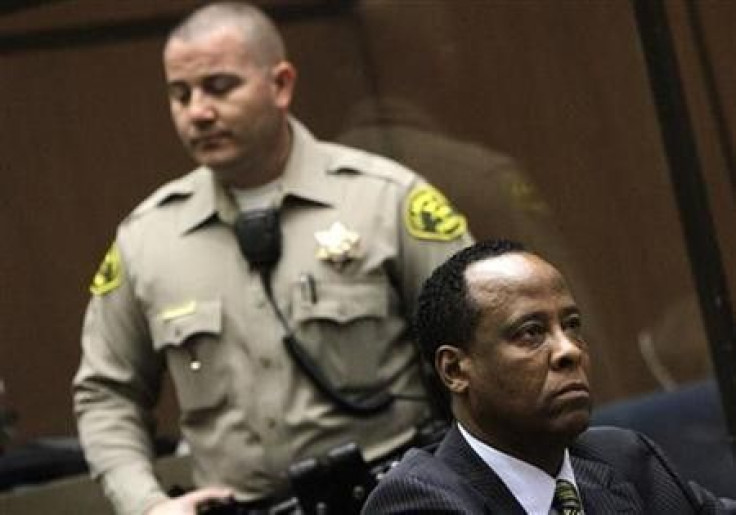Jury Selection Starts in Trial of Michael Jackson Doctor

Attorneys in the manslaughter trial of Michael Jackson's doctor were set to begin jury selection on Thursday, but absent from the courthouse was the media circus that hovered around previous Jackson proceedings.
Only a handful of television cameras and few fans of the Thriller singer were on hand in downtown Los Angeles to watch prosecutors and defense lawyers for Dr. Conrad Murray begin the process of finding 12 people to decide if Murray is responsible for the Jackson's death by drug overdose.
At age 50, Jackson stopped breathing at his rented Los Angeles mansion on June 25, 2009, in what authorities say was an overdose of the powerful anesthetic propofol and sedatives.
Murray was caring for Jackson and at his bedside when he died, and the doctor has admitted giving Jackson propofol, a drug normally used for surgery, to help Jackson sleep. But Murray has pleaded not guilty to involuntary manslaughter.
Prosecutors claim Murray is responsible for Jackson's death because he gave the singer too much of the drug and did not properly monitor the singer while he was asleep, but defense attorneys are expected to argue Jackson administered a fatal dose himself while Murray was out of the room.
In the first three days of Murray's trial, 160 potential jurors per day -- a total of 480 people -- are expected to be brought in to the courthouse, court officials said.
That group will be winnowed down to 100 citizens who will return for further questioning later in the month, according to Los Angeles Superior Court officials.
The first order of business is determining who cannot commit to the estimated four to five weeks that the trial is expected to last. Opening arguments are set begin on September 27.
Potential jurors will also receive a questionnaire that prosecutors and defense attorneys will use to judge opinions on issues relating to the case.
Marcellus McRae, a former federal prosecutor and an attorney with the firm of Gibson, Dunn & Crutcher who is not involved in the case, said that given Murray was Jackson's personal physician, prosecutors will look for jurors who hold doctors to a high standard.
The more emphasis people put on trust and responsibility and standard of care, if that's important to a juror, I think that's a good juror for the prosecution, McRae said.
Murray's attorneys will look for potential jurors who hold the opposite set of views about doctors, and expect a patient to demonstrate personal responsibility, he said.
While the trial was expected to generate a lot of publicity and lure numerous Jackson fans as did his past trial on child molestation charges, the Los Angeles courthouse was fairly quiet early on Thursday morning.
© Copyright Thomson Reuters 2024. All rights reserved.











